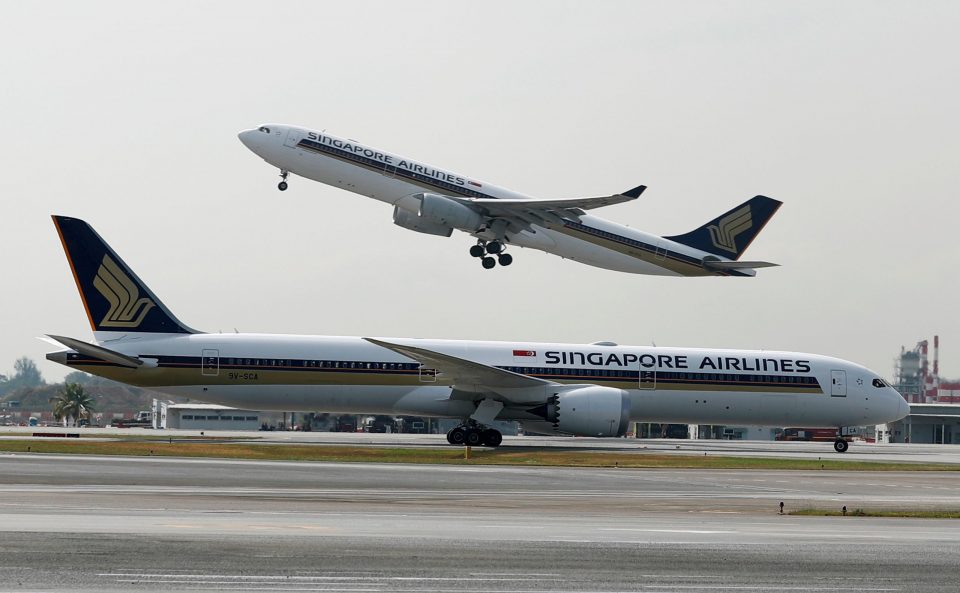KUALA LUMPUR, Oct 10 — Sustainable Aviation Fuel (SAF) should be a central focus in the Budget 2024 to encourage environmental sustainability in the aviation and aerospace industry in line with Malaysia’s goal to meet environmental, social and governance (ESG) commitments.
National Aerospace Industry Corporation Malaysia chief executive officer Prof Shamsul Kamar Abu Samah said investments in SAF, biomaterials, emissions reduction technologies, and eco-friendly infrastructure must be considered in the upcoming budget tabling.
“We believe that SAF to be the focus, and the government’s commitment to its development as currently being implemented under the 12th Malaysia Plan initiative, is a step in the right direction for Malaysia’s aerospace industry.”
SAF development creates economic opportunities
While applauding the government’s commitment to SAF as an important agenda in Malaysia’s aerospace industry, Shamsul said SAF represents a critical step towards reducing the aerospace sector’s environmental footprint.
“By allocating resources and promoting SAF initiatives, the government demonstrates its dedication to both environmental sustainability and the industry’s long-term viability,” he said.
Furthermore, Shamsul said investing in SAF development and production could create new economic opportunities, from research and development to production as well as distribution.
“It aligns with global efforts to combat climate change and positions Malaysia as a responsible and forward-thinking player in the international aerospace community,” he said.
Besides that, Shamsul hoped allocations for research and innovation activities focusing on aerospace technology could help Malaysia stay at the forefront of the industry.
“Encouraging local research and development can drive local supply competency advancements and attract more high-value investments to Malaysia,” he said.
The government has acknowledged the importance of SAF and is encouraging more local airlines to use this fuel to reduce carbon emissions, in line with efforts towards a low-carbon economy.
This is in addition to meeting commitments under the mandatory phase of the Carbon Offsetting and Reduction Scheme for International Aviation.
SAF is a renewable alternative to fossil fuels and could lower greenhouse gas emissions by up to 80 per cent in aircraft. More than 480,000 commercial flights have been using the fuel globally since 2011.
Strengthen aerospace supply chain for global competitiveness
Shamsul also opined that strengthening the various sectors in the aerospace supply chain, from aero-manufacturing, maintenance, repair and overhaul to system integration, was critical for competitiveness in the global arena.
“Investment in supply chain optimisation can improve the efficiency of Malaysia’s aerospace industry.”
Moreover, he added that the government should prioritise advancements in aerospace technology and support for digital transformation, education and workforce development, as well as international partnerships in supply chain development to enhance and ensure the growth of the aerospace industry.
“This is along the line to achieve the long-term goal of the Malaysian Aerospace Industry 2030 aligned with the New Industrial Master Plan 2030.”
The Malaysian Investment Development Authority said it plans to attract RM134 million in investments for the aerospace industry by the end of 2023.
Allocate funding to create jobs in the aviation industry
Meanwhile, Endau Analytics aviation analyst Shukor Yusof suggests the government allocate generous funding in the upcoming budget for the aviation industry as it would help generate more jobs and make Malaysia more attractive to visitors and investors.
“The government should set up a team to look into ways to make the Kuala Lumpur International Airport (KLIA) into an aviation hub as reports show that KLIA has the most connectivity in Southeast Asia,” he said, adding that the government need to find a way to raise the level of competitiveness and productivity vis-a-vis Malaysia Airports Holding Bhd, Malaysia Airlines and other stakeholders.
Shukor added that the current state of the aviation industry in Malaysia needs to be reviewed due to the ease of new startups joining the industry, thereby creating overcapacity and eventually making the entire ecosystem poorer.
— Bernama





